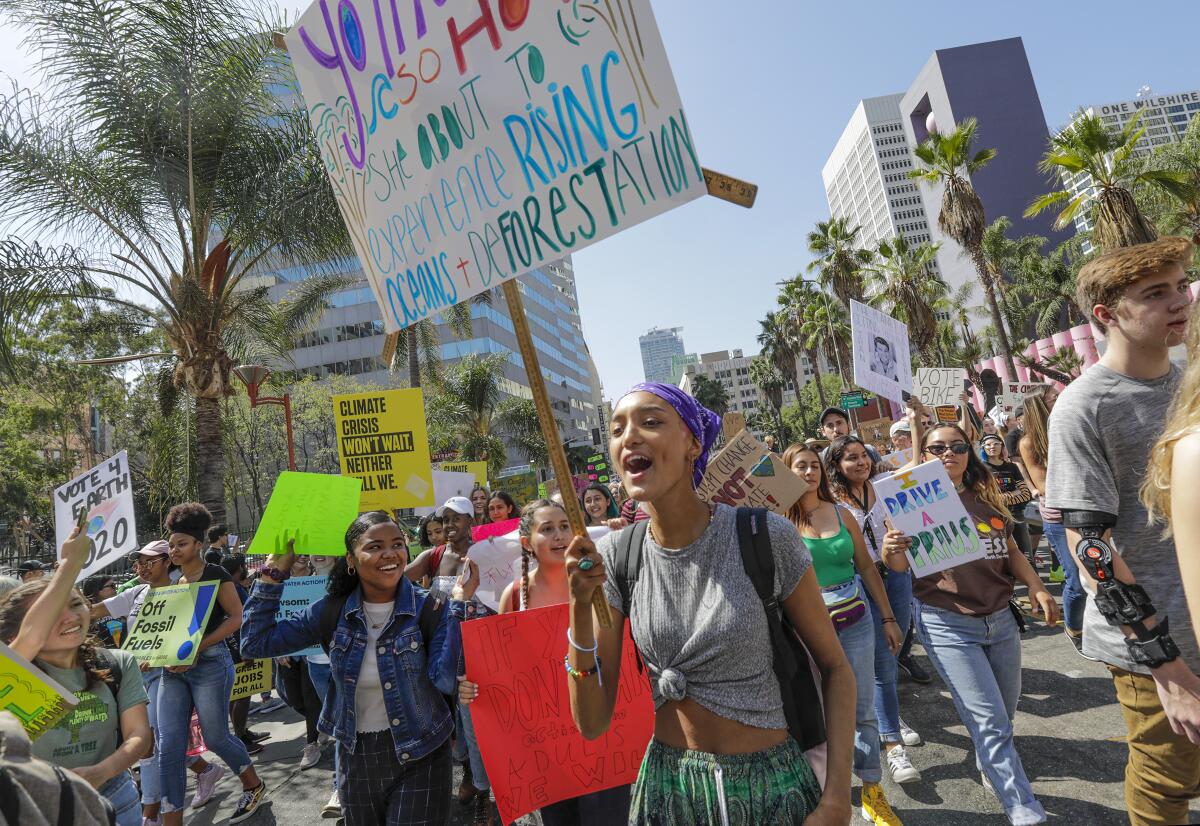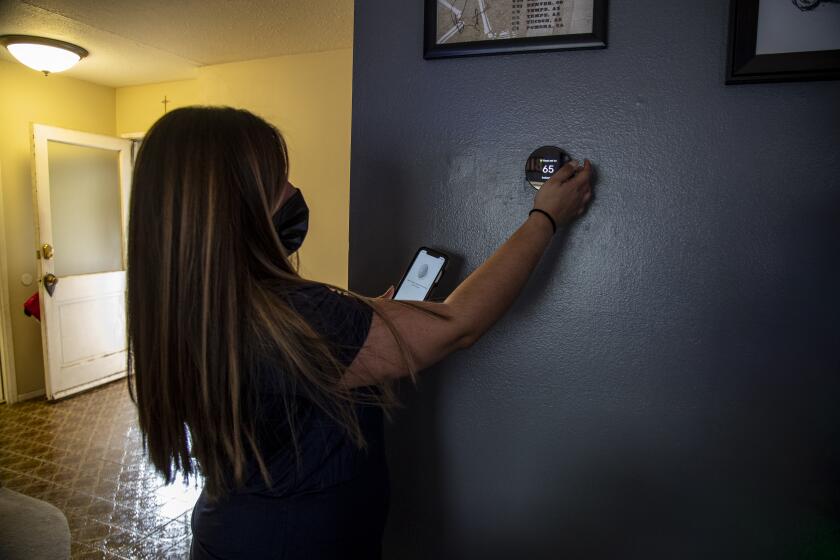Op-Ed: For a generation born into climate change, hope isn’t an option. Activism is

- Share via
I was in high school when the United Nation’s Intergovernmental Panel on Climate Change released its finalized “Fifth Assessment Report.” For a week in 2014, the report occupied my computer screen, side by side with an unfinished college application essay.
IPCC reports are the most comprehensive accounts of how human activities influence the climate. In the seven years since the IPCC released its fifth report, I completed a bachelor’s degree, spent a year in the workforce, completed a master’s degree and began a career in energy policy. Over the same time, humanity emitted about 220 billion tons of CO2, more than the total emitted from the beginning of the Industrial Age to the end of World War II. So as the release of the IPCC’s sixth assessment approached this year, I found myself dreading what it would reveal.
On Aug. 9, I found out. The latest report represented “a code red for humanity,” the U.N. secretary-general said. All my fears, confirmed.
But the horror I anticipated never arrived. I combed through page after page of catastrophic projections with the same level of alarm I’d have reading a recipe for peach cobbler. At the end of the document, I closed the tab and opened an article about the Tokyo Olympics. Ashamed as I am to admit it, I felt nothing.
At the age of 25, I am of a generation of people who have been aware — terrifyingly, paralyzingly aware — of climate change for our entire lives. From the moment I began to take an interest in world affairs, I have been cognizant of a terrible danger beyond the horizon, a near insurmountable challenge that could throw the world I knew into chaos. In sixth grade, a close friend confessed to me that he had been losing sleep worrying about climate change. I told him I had too.
For me, and I suspect for my friend, the climate crisis has never been about hope. In my quarter-century on Earth, no great challenge — be it terrorism, disease or economic catastrophe — has gone unmet by division, bigotry and greed; why should climate change be any different? With each passing year, I have seen the window of opportunity to act grow ever narrower, all the while becoming more confident in my hopelessness.
But neither has the climate crisis evoked the fatalism that often accompanies hopelessness. Not once in my lifetime has the apparent inevitability of climate catastrophe overwhelmed my motivation to act on it. In my head, I am forever on a sinking ship, faced with the choice of passively drowning or swimming doggedly for shore. And so I swim, understanding I will probably drown, but certain that doing something is better than doing nothing.
The dire report from the IPCC doesn’t mean you should give up on reversing climate change. Here’s how you can still make a difference.
Many in my generation approach the climate crisis through this confusing cocktail of pessimism and determination. With no hope of avoiding catastrophe, we nevertheless campaign tirelessly for this impossibility. We have seen no evidence that society will solve this problem, yet we act each day as if it might.
This is why I felt nothing reading the latest IPCC report. It held within its pages a simple confirmation of what my generation had already observed: a detailed catalog of repeated, inexcusable failures to deal with an ever-apparent crisis.
The report belatedly acknowledges an off-ramp. There is still, it reminds us, the possibility of limiting global warming to 1.5˚C. Should humanity collectively commit to solving the problem, there remains a tiny chance of avoiding catastrophe.
Popular discourse parrots this approach. Politicians fighting for climate action obligatorily reframe the crisis as an opportunity. Reporters interviewing experts end each segment with the question, “What gives you hope?” (I am guilty of this). Through it all, we are told a singular message: The only way to overcome the challenge of climate change is to hold out hope that we will do so.
This message is simplistic at best, condescending at worst. Younger generations consistently report pessimism and depression over the impending climate crisis. These same generations are leading the global wave of activism and electoral support for climate action. Through it all we have proved capable of holding two conflicting ideas in mind at once. On the one hand, we acknowledge the near inevitability of catastrophic climate change. On the other, we understand we must fight against it because, after all, what other option do we have?
Beyond hope there is more than despair. There is determination, realism and action. There is a generation raised amid the ravages of a changing climate making every effort — a constant effort — to prevent the inevitable. The ship may sink, but we are going to swim like hell toward shore.
Daniel Propp is special assistant to the founding director at the Center on Global Energy Policy at Columbia University. @danieljpropp
More to Read
A cure for the common opinion
Get thought-provoking perspectives with our weekly newsletter.
You may occasionally receive promotional content from the Los Angeles Times.











